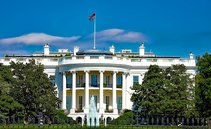China’s economy improved in early 2024 despite significant challenges coming from its real estate sector.

China’s National Statistics Bureau posted better-than-expected data on Monday, giving hope to analysts about a delayed post-Covid recovery. Chinese officials pledged to reach a 5% GDP growth this year despite current economic hardships.
Industrial production in the world’s biggest exporter increased by 7% instead of the 5% predicted by Reuters-polled analysts. Retail sales also increased more than expected at 5.5% compared to the 5.2% forecast.
The report compiled data from January and February together, spreading the economic effects of the Chinese Lunar New Year, which fell on February 10th this year.
Domestic tourism during the Lunar New Year increased compared to last year and 2019, pointing to growth compared to pre-Covid years. The average spending per trip increased by 9.5%, as reported by China’s chief economist at Nomura Ting Lu.
Exports, which have slowed significantly last year, also beat expectations in the January-February period. China’s exports increased by 7.1% compared to the meager 1.9% expected by a Reuters poll.
Similarly, imports rose by 3.5% in the same period, above market expectations of 1.5%.
At the annual “Two Sessions” conference, China’s government officials announced a refocus on the country’s economy. China will focus its exports on the “New Three”: electric vehicles, lithium-ion batteries, and solar panels.
leggi anche
Here’s how China exports avoid US restrictions

Real estate challenges
The success of China’s refocus will depend on two factors: growing global demand and the domestic real estate crisis.
Global demand, especially from Europe, is still falling behind China’s output. The United Kingdom slipped into recession early this year, with Japan and the Eurozone posting meager growth. The United States, on the other hand, is growing more than its peers, currently supporting China’s export growth.
The real estate crisis, which started in 2021 with the default of China’s largest developer Evergrande, keeps worsening. A Hong Kong court ordered Evergrande’s liquidation with real estate giant Country Garden facing a similar fate.
The Minister of Housing and Urban-Rural Development Ni Hong recently said struggling property developers should go bankrupt. Beijing’s party line is against price speculation, even in an industry as crucial as the real estate one.
According to UBS, the real estate market amounts to 22% of China’s GDP, down from almost 30% during the pandemic years.
Economists believe that, if not solved swiftly, the real estate crisis could plunge China into a Japan-like stagnation by the end of the decade.
Refocusing the economy may not be enough to salvage the situation. Economists suggest Beijing should focus on household consumption and market allocation of resources.
To that end, the country’s central bank chairman Pan Gongsheng pointed to a cut to the bank’s reserve ratio requirement (RRR). This ratio is the amount of liquidity banks are required to hold. By decreasing it, the government allows banks to increase investments, pouring liquidity into the economy.




